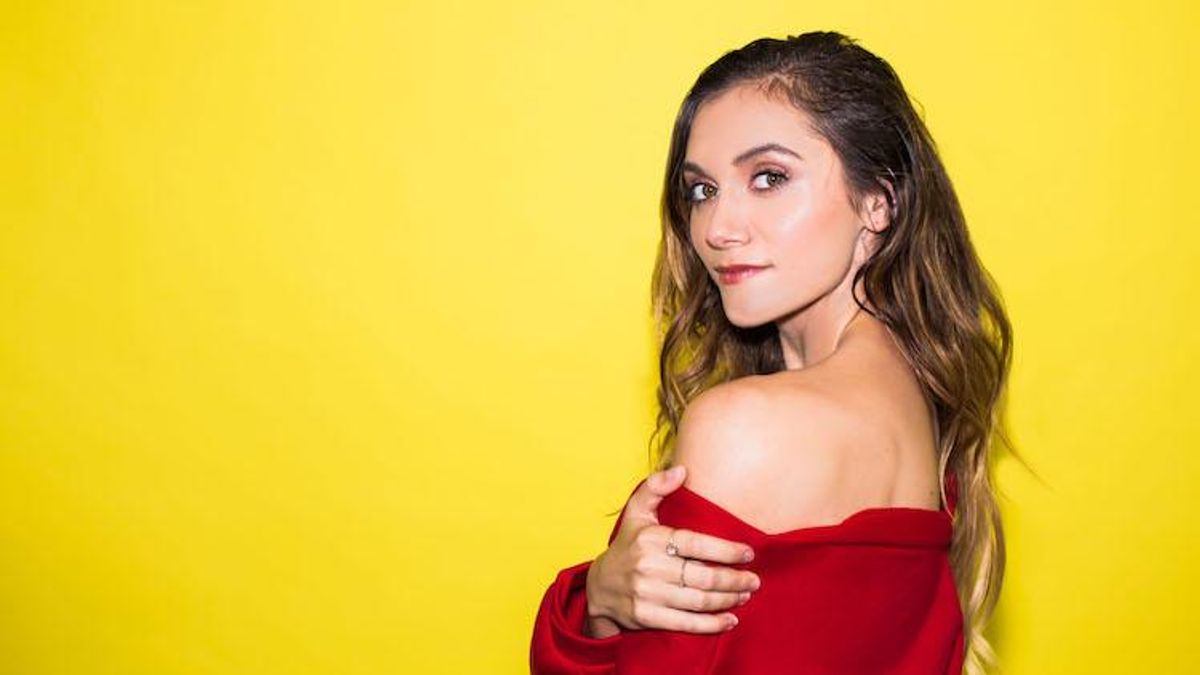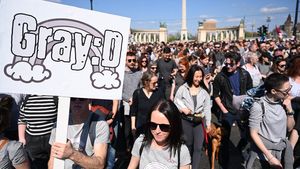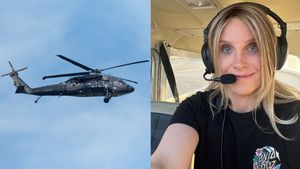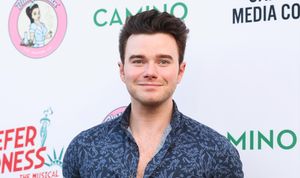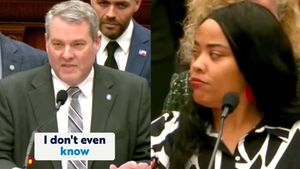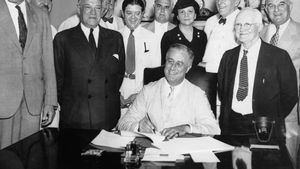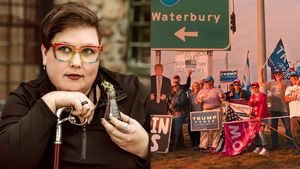Alyson Stoner grew up before our eyes, and she's made a point of discovering herself on her own terms. The actress, singer, and dancer came out earlier this year in an essay for Teen Vogue. And in the video for her latest single, "Fool," she explores this newfound self-love.
Related | Disney Channel Icon Alyson Stoner Comes Out as Queer in Personal Essay
We recently caught up with Stoner, who'd just returned from a trip to Ethiopia. For almost a decade, she's been working with I Pour Life, an organization that aims for community development, youth empowerment, and women's economic empowerment, among many other causes. She considers their projects to be long-term investments for Ethiopian communities.
Among an incredibly outspoken generation, she remains an articulate example of a positive role model for young people. Although she doesn't consider her adolescent experience in the Disney machine entirely positive, it seems to have made her stronger.
We sat down to discuss growing up in the spotlight, making time for mental health, and coming to terms with sexuality.
I've been a fan for a while, like honestly, Mike's Super Short Show was my first impression of you.
Yes! Oh, my word.
And obviously, Cheaper by the Dozen. I told everyone I liked it because I had a crush on Hilary Duff, but it was actually Tom Welling.
Yes! (LAUGHS) And I, Hilary Duff.
Right? Yeah, she was my beard for a while. It's amazing seeing how you've progressed through your career, being in show business so long. What have you taken with you along the way?
Honestly, I wish I could say that I have only positives, because I try to have a mentality of overcoming and gratitude. But realistically, something I've been exploring a lot this past year is the idea of a young person's development being so influenced and persuaded by such extreme outside forces at a young age. And I think my socialization was abnormal, and my sense of duty and responsibility was heightened because I was working 18 hour days, seven days a week.
So, I'm grateful for what I've learned. But I also sometimes crave normalcy and anonymity, because I've always been in the public eye. The beauty is, and you kind of feel like a failure for it, but the beauty of aging out of certain Disney shows is that people stop recognizing you every day. So there's that battle of like, "Oh no, does that mean that I'm fading into obscurity?" But also, "Yes, freedom!" Like, I get to go to the grocery store. So yeah, it's a strange process.
But I feel like you've kind of kept like a good head on your shoulders.
You know, I think therapy is incredibly important. I voluntarily began therapy at age 13, and she's almost like a life coach and mentor at this point. And I think having someone who is consistent and a healthy authority figure who didn't need anything from me, who wasn't a "yes man," and who didn't have any affiliation with Hollywood, was crucial.
Most of my peers, at least to my knowledge, didn't have that. And there's a very clear difference in just self-awareness and coping resources. But like I said, I think starting that young is a setup, and I am sometimes surprised that I'm as stable as I am. Even, I feel crazy. (LAUGHS)
I mean, growing up can be hard for anyone, but I cannot imagine the pressure of growing up in the spotlight.
It's really odd. I don't recommend it. It's almost like I have to reclaim my childhood as an adult by finding ways to allow myself to be youthful and silly, because I didn't have that privilege as a kid.
You've been pretty outspoken about mental health, which I love. Would you say you find performing to be a kind of therapeutic outlet?
Absolutely. I think if I wasn't in the arts, I wouldn't have the same kind of catharsis and the same opportunity to express and vent and release.
Storytelling has also really been a huge component for building empathy, because as I'm portraying characters, if I judge them for their thoughts or feelings or behaviors, you'll be able to see Alyson get in the way. So, I've had to learn how to embrace every point of view, and that's helped a lot in conversations now, like about sexuality.
And I just spent two weeks with a lot of people who think homosexuality is a crime and that people need spiritual conversion, and I hadn't been around that for a while. But I'm grateful that I know how to listen and find a way to mediate.
And that was in Ethiopia?
Yes, it's a crime in Ethiopia.
Was that kind of scary?
I mean, what's interesting is that I was staying in a religious prophet's house. So, I was listening to their plans to build and expand their church. You know, I'm supportive of everyone's growth. And what's ironic is that they said, after listening to me talk, that I should speak there. And in my head, I just wondered if they knew, you know, would they think I was unfit?
So, what I try to do is always meet someone heart-to-heart and level with them as a human being, because I think it's hard to demonize someone that you know. So, I really try to focus on building relationships, and then let my actions in life speak for itself. And then when the conversation comes up, there's a little more grace, it feels like.
Absolutely. So, I really enjoyed "Fool." I know you mentioned in your Teen Vogue essay that a lot of your music is about that one woman. Is this about her or anyone in particular?
This is not about her. For me, this song is actually a statement of coming into my skin and being in my body, which is ironic because I am an actress, and we're supposed to feel feelings.
Many years ago, I was diagnosed with Alexithymia, which is the clinical inability to describe sensations and emotions in one's body. So, I've been really detached from myself, even as a dancer. You would assume the opposite. So, through my relationship with her and other people, I've finally come into my own skin in a way that's allowed me to be vulnerable and intimate and transparent.
Whereas, most of my other jobs lead with this headstrong confidence, I wanted instead to invite people inside my senses, because now I'm finally embodying it. So, the song brought a few different people to mind, but I knew that the theme, the common thread of that was just true intimacy with self and with others.
That's awesome. I really love that element of self-love that you advocate for.
I think it's just that I'm sharing my journey and what's been helpful for me, and when I experience freedom, the first thing I want to do is help others find it. Because you understand the alternative of feeling bound and feeling scared and depressed.
So I know you're a fan of Hayley Kiyoko. As an out musician, how does it feel to be a part of this generation that has so many positive LGBTQ voices?
I honestly sometimes feel like I'm unworthy in a way, because I think of all the previous generations. It really feels like a gift, because it's been such a journey for so many generations.
At first, a queer icon was like a freak, and you had to almost take on freakish personality traits and be a rebel in order to have a cause that was not mainstream, but still something that some people could fight for. And now, it just feels like it's become more normal, it's become more human.
And when I look at Hayley's music in Kehlani, I'm always appreciative that things can be simple and it doesn't have to be gratuitous. Because I think of my own sexuality, and I'm not really comfortable being like super loud. And a lot of my gay friends are so confident, outwardly, and I'm such an introvert. So, being able to still find quiet and simplicity within sexuality and art, I feel like I can identify. And I guess that's what I want to offer too. If it's not natural for you to put on a parade for people, that's okay. You can be the same self and just not wear the mask.
You're such a positive role model in a very outspoken generation. What would you say is something you hope to achieve with your platform? If anything? Because I know you don't really have a responsibility to.
Right, I appreciate that. I do, and I don't. It's kind of unsolicited, it comes with the territory.
Broad aerial view, I want to help elevate the public consciousness through storytelling. I want to help people become a little bit more emotional and emotionally intelligent. Because I'm noticing that might be a tool for bridging the gap in some of these difficult conversations. And if I can elevate the consciousness, this is sort of nerdy, but you can transcend this either-or and this black-or-white and this polarization of us-and-them. And you enter a sort of a higher stage of love, awareness, acceptance, and I would love to help people reach that. Because I think it would save a lot of energy and arguments.
And then on a more practical level, I would love to help people fall in love with the world and themselves and other people and normalcy. Because I think being in the public eye, there's this illusion of separation and this desirability in this unattainable celebrity facade. And I'm such a minimalist, I'm so painfully normal, but I find the greatest joy in being present with a friend or reading a book. And I would love to help people fall in love with simplicity and solitude and connection, and just kind of have an alternative voice to celebrity.
My biggest hope is that there will be a mental health professional on every set and on every concert tour. I think that's so obvious, and it should've been done years ago. And my friends who have committed suicide or my friends who know the musicians who have, if we had someone checking in with them every day, just making sure they felt resilient or they had someone around, we could help a lot.
Alyson Stoner's "Fool" is now available on Spotify and iTunes. Watch the video below:
